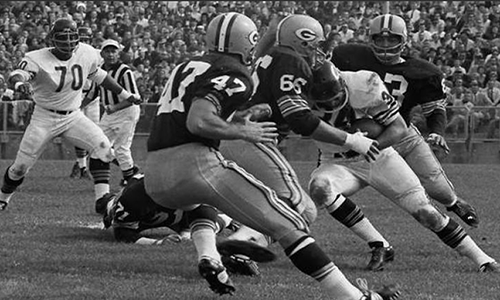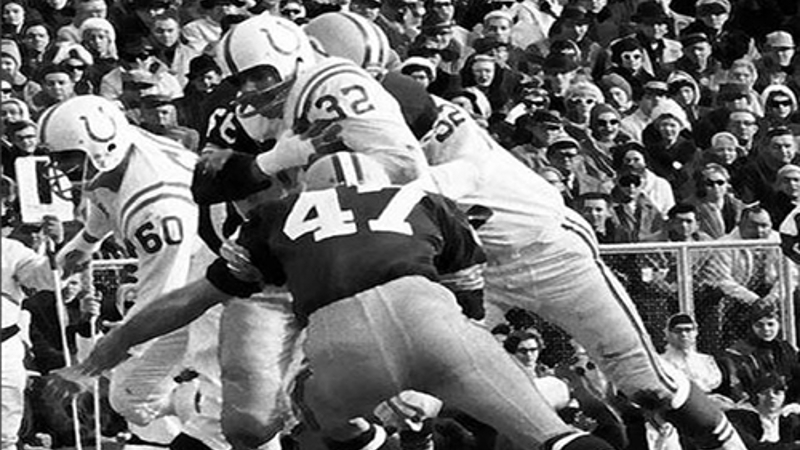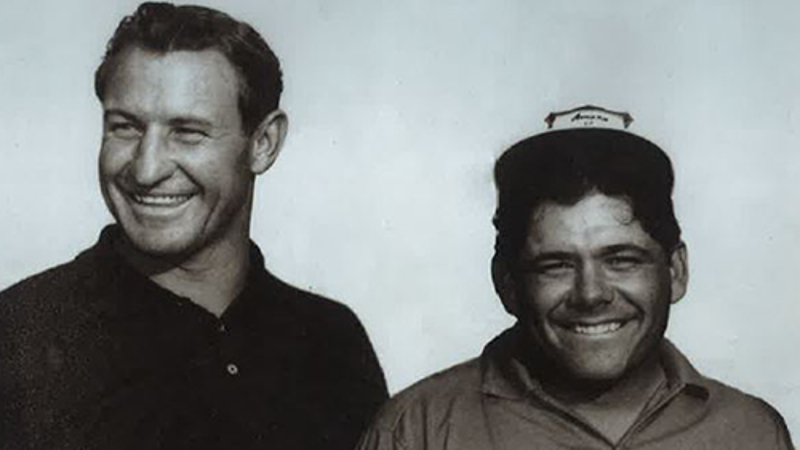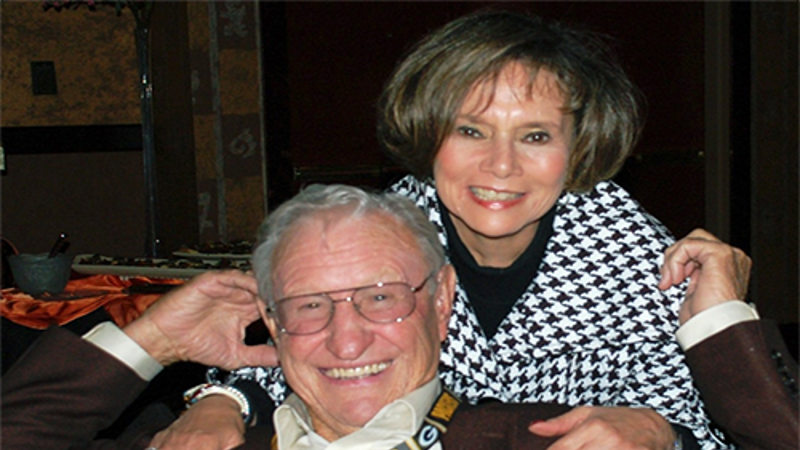Green Bay Packers Hall of Famer Jesse Whittenton played in Green Bay from 1958 to 1964, winning two NFL Championships under legendary coach Vince Lombardi. Whittenton was revered by Lombardi and loved by the people he met in football and in his post-football career as a PGA Senior circuit golfer and course owner. Whittenton was twice diagnosed with cancer, the second diagnosis being terminal in March 2012. Two months later, Whittenton died by suicide at age 78. His widow, Barbara, donated his brain to the UNITE Brain Bank. Researchers there diagnosed him with Stage 3 (of 4) Chronic Traumatic Encephalopathy (CTE).
Barbara Whittenton is sharing Jesse’s Legacy story to honor how special of a man he was and to encourage families of other former NFL players to donate their loved one’s brain after death.

Jesse Whittenton was born in Big Spring, Texas. He was a star athlete at Ysleta High School in El Paso and a highly sought-after recruit by many college coaches. He attended Texas Western University (now UTEP) and littered the school’s record books. In the 1955 Sun Bowl, the Texas Western Miners upset the heavily-favored Florida State Seminoles thanks to a legendary performance from Whittenton.
Whittenton was drafted by the Los Angeles Rams in 1956 and joined the Packers in 1958. Coach Vince Lombardi arrived in Green Bay the following season in 1959 and immediately made his presence felt.
Lombardi turned the then-woeful Packers into NFL champions in 1961 and 1962 and saw something special in Whittenton.
Lombardi once wrote Whittenton was “as close to being a perfect defensive back as anyone in the league… he can run with any halfback or receiver in the league and… he is a great student of opponents. He has studied everything about all of them, including the expressions on their faces that, when they come up to the line, may tell him something about what they are going to run.”
Whittenton was at times the perfect pupil, but at others he couldn’t shut off his jokester nature. In one of the two Pro Bowls Whittenton played in, his teammates were betting that no one would do the popular dance “The Twist” during the nationally televised game. Whittenton took the bet and twisted as his name was announced. He felt the wrath of Lombardi, who was also his Pro Bowl coach. Lombardi initially threatened to fine Whittenton $6000 for the dance, but Lombardi himself tried dancing while on vacation in Italy, realized the humor of the act, and reduced Whittenton’s fine to just $200.
Whittenton played in an era where concussions weren’t in the football lexicon. He swore he never suffered a concussion in his career, but then he would reminisce about getting his “bell rung” and returning to the game as soon as he came to.

Whittenton intercepted 20 passes in his seven seasons with the Packers, cementing his legendary status among Packers fans and his former teammates. Even decades after Whittenton retired from football, security guards at Lambeau Field would hug him when he returned for alumni weekends.
After football, Whittenton, who had taken to golf in college, returned home to west Texas and started his second athletic career as a golfer on the PGA Senior circuit. He and a cousin bought El Paso’s Horizon Hills Country Club in 1965. There, Whittenton hired a young man named Lee Trevino to serve as a bag boy for the course. A few years later, Trevino was in the midst of a Hall of Fame golf career and became Whittenton’s business partner.

After Jesse Whittenton’s football career ended, he (left) and future Hall of Fame golfer Lee Trevino (right) became friends and business partners.
Whittenton golfed every day for the rest of his life. The course was an outlet for his constant itch to be outside in the world. He was only able to sit still inside if a John Wayne western was on TV. On the course, his magnanimous personality was on full display.
“He just wanted people to be happy. He’d play golf with anybody,” said Barbara. “He didn’t care if you were a 40 handicap or you were a one handicap, really. He enjoyed it and he didn’t care.”
Whittenton always had dogs in his life, often by the same name. There were several Storm’s and always a Sheba. When a prior Sheba died young, Barbara saw Whittenton cry for the first and only time in their lives together. Whittenton got a new Sheba, who, along with Buster, followed Whittenton around the golf course like foot-tall furry caddies and slept with him at night.

In 2004, Whittenton and Barbara moved to the Sonoma Ranch golf course in Las Cruces, New Mexico. The two of them golfed and traveled together, with Whittenton still repairing clubs and helping at the course.
Five years later, Whittenton was diagnosed with throat cancer. The prospect of becoming a burden upset him.
“Why would I go through treatments when I’m going to die?” Whittenton asked his doctors.
Whittenton’s cancer treatment spotlighted his growing memory loss. He frequently forgot chemotherapy appointments or got lost during drives he’d made dozens of times.

The memory loss was so stark that friends of the Whittentons assumed it was just joking from the same man who did “The Twist” on live TV nearly 50 years earlier.
Whittenton was triumphant in his first bout with cancer. His memory continued to fade but the cancer was in remission.
He survived feeling like a burden through the first diagnosis, but he was crushed by a second terminal cancer diagnosis in March 2012.
On May 21, 2012, Barbara was in El Paso and Whittenton’s friends were scheduled to take him to an appointment. Before they arrived, Whittenton called a neighbor and instructed him to call 9-1-1 at 3PM. The neighbor didn’t wait that long.
By the time the ambulance arrived, Jesse Whittenton had taken his life. He was 78 years old.
The following day, Barbara received a call from the Las Cruces medical examiner. Researchers at the UNITE Brain Bank in Boston were requesting to study Whittenton’s brain.
“I said yes without hesitation. It was something I needed to know. I think everybody needs to know,” said Barbara.
Brain Bank researchers diagnosed Whittenton with Stage 3 (of 4) Chronic Traumatic Encephalopathy (CTE). The diagnosis brought comfort to the Whittenton family. Rather than being a victim of dementia, something had caused his late-life memory loss and occasional outbursts.
At his funeral, former teammates told tales of Whittenton’s legendary kindness and humor. He was a beloved husband, father, and grandfather, as his grandchildren adored his playful spirit and ability to make them laugh.
Barbara has golfed only once in the seven years since Whittenton passed away. Sheba and Buster are her last link to the man she loved so deeply. They still sleep on his side of the bed.

